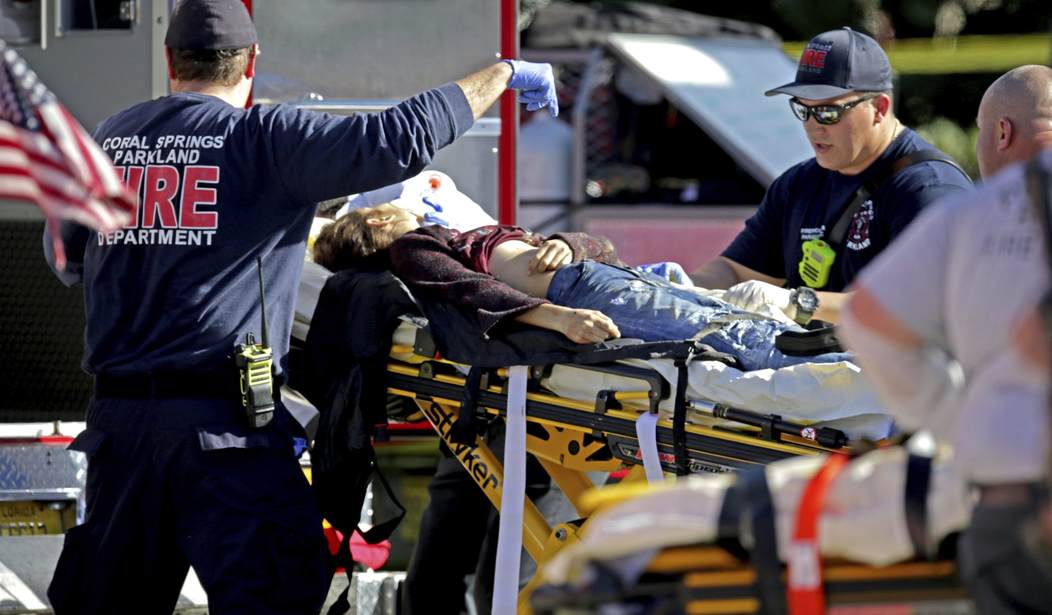Polk County Sheriff Grady Judd supports the idea of arming teachers in Florida’s public schools. And not just one per school. Judd added that it would be best to have as many teachers as possible armed, trained, and ready to respond to an attacker.
“In the ideal world, we shouldn’t need anyone on campus with a gun, but that’s not the world we live in today,” he said. “One’s not enough. Two’s not enough. We need multiple people in order to protect the children.”
Florida lawmakers are going to have to decide early next year if he’s correct.
Fourteen students and three staff members at the Marjory Stoneman Douglas High School in Parkland, Fla., died on Feb. 14, 2018, and 17 others were wounded by Nikolas Cruz, a 19-year-old former student at the school who committed one of the deadliest school massacres in U.S. history.
Legislation signed by Gov. Rick Scott a month later empaneled the Marjory Stoneman Douglas High School Public Safety Commission to investigate the shooting and similar school attacks, and provide recommendations to prevent other violent assaults in Florida schools.
Sheriff Judd is one of the 21 people who are members of the commission. He and every other commission member except one endorsed the report and its call for armed teachers. The only commission member to vote “no” was Max Schachter, whose son was one of those killed in the February attack.
The commission’s members admitted in their report that “while the goal of school security is to prevent another tragedy, reality is that another active assailant event will occur.” The question that logically follows is how to quickly stop the shooter and keep casualties to a minimum.
The commission’s report, which was released Dec. 12, will be submitted to the governor and Florida legislature in January.
While the 407-page document criticized Broward County sheriff’s deputies, school staff and administrators for a slow, inefficient and uncoordinated response to the gunfire, it also offered recommendations for improving security and student safety ranging from improved early warning systems inside schools to training teachers how to administer first aid to gunshot victims, and employing full-time law enforcement officers in every school, every day.
The most controversial of those recommendations is the idea of allowing teachers who want to be armed to go into their classrooms packing firearms – after more than 100 hours of training.
Schachter said other alternatives, such as hallway smoke cannons that could be used to confuse shooters, should be considered before letting weaponized teachers into classes. He contended that arming teachers would only create a “host of problems.”
Rep. Ted Deutch, a Democrat whose district includes Marjory Stoneman Douglas High School, hopes Florida lawmakers erase the idea of allowing teachers to carry loaded guns.
“Teachers want to teach, not be armed for combat in their classrooms,” Deutch said. “Law enforcement cannot push their responsibilities to make our communities safer onto civilians that should be focused on educating their students.”
Broward School Board members rejected the idea of arming teachers in their schools back in April when members turned thumbs-down to taking part in a $67 million state program to pay for training and stipends to arm some school employees.
The idea of arming teachers as part of the Aaron Feis Guardian Program, named after a high school coach gunned down in the February massacre, was rejected by Florida lawmakers. However, other school employees – librarians, administrators, coaches, and ROTC instructors – could take part in the 132-hour firearm training program and then be armed in school.
Board member Rosalind Osgood voted against participating in the program. She said it would be counterproductive.
“This would mean more guns, the purchase of more guns, the legalization of more guns,” Osgood said, “and more guns brought from the community into schools.”
The Florida Coalition to Prevent School Violence came out against the idea of arming teachers following the release of the Public Safety Commission’s report.
“There are liability issues, increased costs to school districts, workplace shootings, and the threat of unintentional gun discharges (which we continue to see) that school districts must confront if school personnel are armed,” the coalition said in a statement. “Intense training is needed to confront an active shooter – and without harming any other people – in buildings filled with staff, students and visitors.”
The coalition also said “unarmed school staff have stopped more active shooters than civilians with guns” and pointed to an FBI report that showed 56 percent of the violent attacks ended when the shooter either stopped shooting, fled the scene, or committed suicide.
But Pinellas County Sheriff Bob Gualtieri, the chairman of the Marjory Stoneman Douglas High School Public Safety Commission, said more guns in schools – in the right hands – would save lives.
Gualtieri told the Associated Press most deaths in school shootings happen in the first minutes of the attack. That gives the police no time to respond and means teachers are the last line of defense. And even when police arrive on the scene, they are going to need backup from armed citizens.
“We have to give people a fighting chance, we have to give them an opportunity to protect themselves,” Gualtieri said. “One good guy with a gun on campus is not enough.”









Join the conversation as a VIP Member